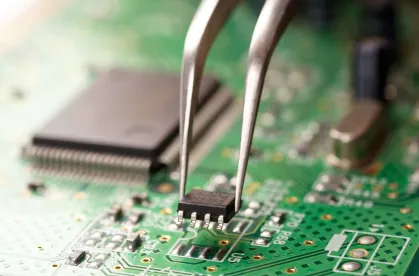As the rise of electric vehicles continues, many countries and industries have been pushing to get ahead of the demand for batteries, microchips, and other key components in these vehicles. In the US, automakers and suppliers have begun expanding battery capabilities, with major announcements continuing this week.
This past week, the New York Times and Wall Street Journal reported that GM and LG Electronics had filed applications in Lansing, Michigan for a reported $2.5-3 billion battery plant. The report cited plans to convert an electric car plant currently manufacturing the Bolt to an electric pickup, and the planned development of a battery plant nearby. GM is also investing in battery plants in Ontario, Canada; Mexico; Ohio; and Tennessee. GM is gearing up for major investment as it moves toward an aggressive rollout of electric vehicles in the next four years.
Shortly before the GM announcement, Toyota announced plans to open a massive lithium battery plant in Liberty, North Carolina. Toyota expects to launch production in 2025 and continue to expand operations thereafter. The announcement predicts over 1,750 new jobs created through the battery plant. As noted in the announcements, Toyota is estimated to produce the same number of battery-electric vehicles as traditional gas models by 2030 and, together with hybrid and other alternative vehicles, would comprise over two-thirds of Toyota’s overall sales.
In September, Ford Motor similarly announced plans to invest over $11 billion in battery plants and an electric truck plant, concentrated in Kentucky and Tennessee. On Thursday, Ford’s CEO spoke with CNBC about their electric vehicles, and said it needed batteries even more than semiconductor chips. Ford’s electric Mustang has been a smash hit, highlighting the capabilities of the future of electric muscle cars, and Farley said Thursday that Ford was working to meet the demand of over 200,000 reservations for an electric F-150. Ford stopped taking reservations over 200,000 units, indicating an even higher demand available for these vehicles moving forward.
These investments are all intended to position the automakers to compete in the future global automotive market, and to better control and manage the supply chain for those future vehicles. Having battery production in their own backyards, instead of halfway around the world, would mitigate some of the supply-chain woes automakers have experienced the past year and a half. Of course, automakers will still have to wrestle with sourcing the raw materials for these battery plants, but those demands could shift as new technologies emerge to power future vehicles. In the meantime, automakers and suppliers are well on their way to establishing a new footprint, and foothold, in the electric vehicle race.




 />i
/>i

